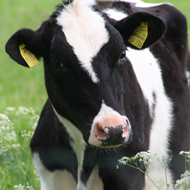AHVLA invites tenders for suppliers

A quality assurance system will ensure TB testing is carried out to the required standard.
The AHVLA is inviting tenders for delivery partners to supply a flexible package of veterinary services, funded by the taxpayer, across seven lots covering England and Wales.
In July last year, the agency revealed plans to change its relationship with the suppliers of veterinary services to improve efficiency.
“The new contractually-based model will better assure the quality of tuberculin testing and other veterinary services, enhancing their value as disease control tools, whilst continuing to reorganise and support the partnership that exists between livestock farmers and vets in controlling and eradicating animal disease,” says AHVLA's veterinary director Simon Hall.
The tender period will run under September 9 and contracts will be awarded to suppliers, known as delivery partners, towards the end of the year. Partners will begin delivering services from April 2015.
Selected delivery partners will be required to sub-contract work to local businesses, assuming these businesses meet the required quality assurance standards and offer a competitive price.
Where possible, animal keepers will also be able to choose their preferred vet from this list of sub-contractors.
Delivery partners will have to work with animal keepers to make sure a suitable vet is available when needed and customer satisfaction will be monitored by the partners and AHVLA.
A rigorous quality assurance system will be implemented to ensure TB testing is done to the required standard.
Partners will have to follow a health and safety policy which includes cattle handling.
Tender clarification days will be held on July 30 in Weybridge and August 7 un Builth Wells to allow potential bidders to clarify aspects of the tender.
Initially, contracts will be awarded for a period of three years with the option to extend for a further two years.
For further information see the AHVLA website.



 HMRC has invited feedback to its communications regarding the employment status of locum vets and vet nurses.
HMRC has invited feedback to its communications regarding the employment status of locum vets and vet nurses.